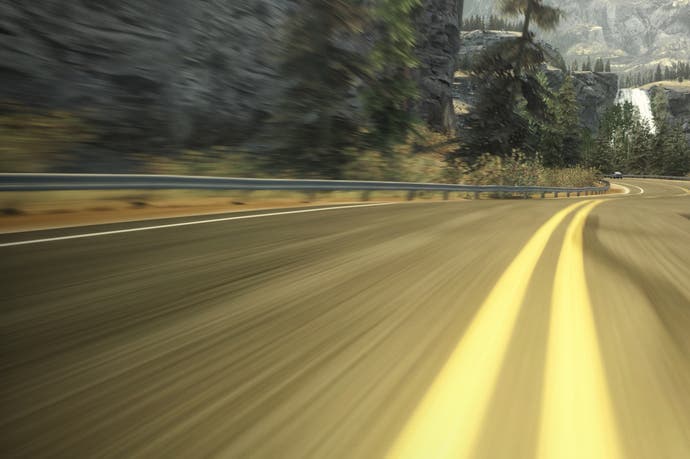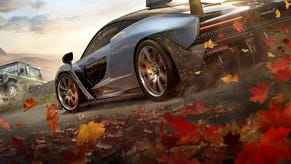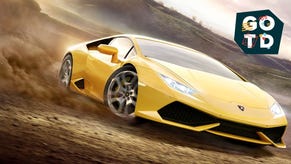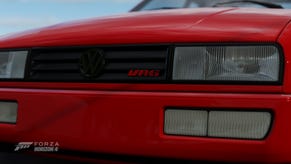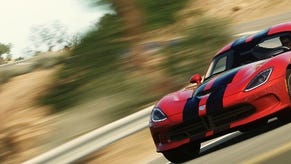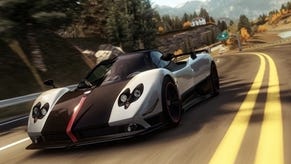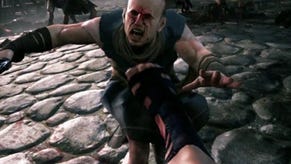Games of 2012: Forza Horizon
Join the club.
I finally saw the documentary Senna this year. I'm late to the party, I know. The film came out in 2010, and it chronicles the career of the late Brazilian Formula One champion Ayrton Senna, perhaps the best racing driver in history. I took my time getting around to Senna because I don't really consider myself a “car guy”.
That seems foolish in retrospect - Senna is a film about competition, politics and passion as much as it is a “movie about cars” - but all of us commit these oversights on a regular basis. We carry around a finely honed sense of which groups we belong to and which we don't. We're wired to think this way, as a mental vestige of some prehistoric tribal existence. I'm not in the “car nut” tribe, so I don't watch Senna for a couple of years. Maybe you know someone who doesn't consider themselves part of the “gamer” tribe, so they don't play video games. Same deal.
Forza Horizon invites you to join the car club. Or maybe it would be more accurate to say that it tricks you into joining the car club. The game is that clever about it. The conceit is that there's this big Colorado festival called Horizon where each year, a bunch of drivers get in their fast cars and race and do nifty stunts for a couple of weeks. It sounds like an affair for the hardcore. If you don't know your rack-and-pinion from your camshafts, you don't belong here.
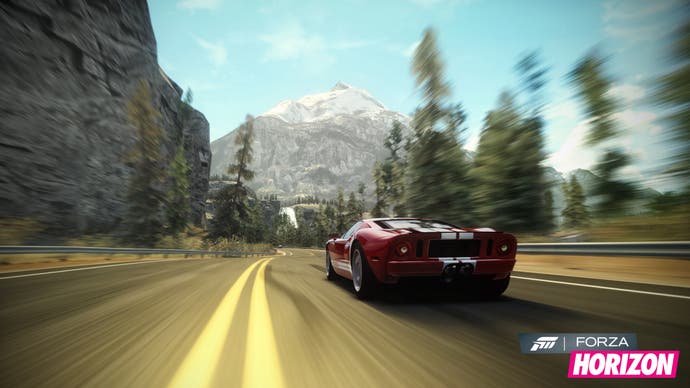
Human beings naturally want to belong - and by the same token, we're afraid of not belonging - so Forza Horizon indoctrinates you before you know it. The game kicks off when a radio broadcast informs nearby drivers that Horizon is giving away all-access passes to the next 10 drivers who can make it to the festival's front gates. Standing around outside the local general store - you are apparently some sort of drifter before the Horizon festival arrives to give your life meaning - you hop in your red Volkswagen and follow the GPS indicators to the promised land.
Along the way, the DJ on the radio provides breathless updates. Only seven slots left! Now only three - hurry up! It's all so exciting that if you're not paying attention, you might not notice that the fellows in the Lamborghinis and Ferraris mysteriously slow down to let your boxy beater whiz past. Have they misplaced their accelerator pedals? If you slow down even further to test their commitment to the ruse - yes, I tried this - they suddenly crash into some obstacle on the side of the road. Oops! So clumsy! It's like an automotive version of The Truman Show: the script says you are going to get one of those 10 slots.
Still, the deception is an important one. Once you're in, a festival director hands you your pass, your wristband, your Horizon two-way radio. The message is that you belong here, and you did something to belong here (never mind that it was a fait accompli), so stop worrying about it already.
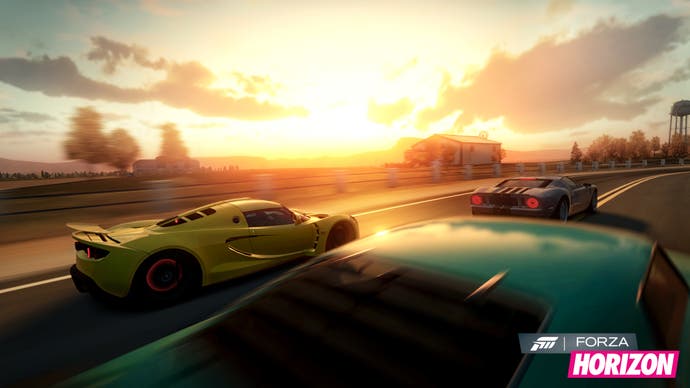
That matters because the world of cars can be a daunting one. It's rich in testosterone, rife with jargon, and often unforgiving to the ignorant. (The parallels to “gamer culture” remain apt.) Forza Horizon manages to lay out the welcome mat without being too condescending about it, and without sacrificing the aura of exclusivity. After all, part of the fun of belonging is the notion that it's special to belong. The game does for gearheads what Brütal Legend did for heavy metal - speaking of intimidating subcultures.
Just as Brütal Legend made metal come alive by steeping itself in the hedonism and self-aware spectacle of the music, Forza Horizon's indoctrination works because the game's desire to convey the ecumenical appeal of wheels permeates its design. The festival's myriad events make you try a slew of different vehicles on various terrain. So you can see how a 1970s Mustang responds on a dirt road, or what it's like to race a Mini Cooper (against a half-dozen other Mini Coopers) on city streets. The game's imagination can get downright zany, like when it makes you race your earthbound car against a freaking biplane.
As Forza Horizon takes you through all these fantastical permutations, the more prosaic pleasures of driving emerge. I understood the concept of a racing line - the fastest path around a given course - but after a hundred or so races in Horizon, I understood the feel of a racing line, which proves to be more exciting. Because I was compelled to drive such a wide variety of cars, I also got a sense of, for instance, how engine placement affects a car's handling, and when acceleration matters more than speed.
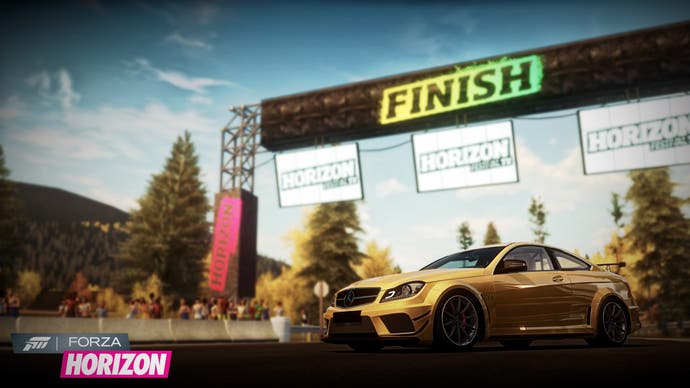
These are notions I previously regarded as arcana, and I never would have bothered to learn them, except that Horizon never told me it was teaching them. Horizon is almost devoid of tutorials - those tools by which game designers turn the thrill of discovery into the lull of pedantry. It works on the assumption that to love the road, you've got to run the road, and it's not about to stand in your way. Get out there already!
I could say that Forza Horizon represents an invigorating fusion of arcade racers and sim racers - if I wanted to express its appeal using a few shibboleths of the gamer tribe. But that would miss the point. The brilliance of Horizon is that you don't need to speak the language.
In his review, Oli Welsh wrote, “Forza Horizon is a big, exciting game that finally brings car enthusiasts together with the realistic open roads they crave.” I don't doubt that, and I certainly can't presume to speak for car enthusiasts in any case. My takeaway from Horizon, though, is that it's a big, exciting game that finally brings non-enthusiasts (or at least this one non-enthusiast) together with the realistic open roads they, too, crave. That's the more noteworthy accomplishment, because the possibilities of the asphalt horizon possess a mystique beyond any one subculture. Plenty of games can preach to the converted; it takes confidence to hand over the keys to the clubhouse.
